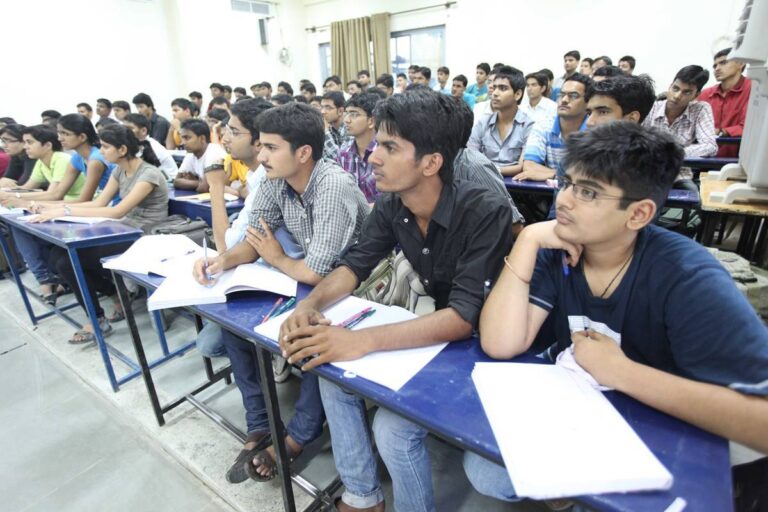
Every year around this time, when the results of different board examinations come, a disturbing question haunts me. Is it that in the process of becoming “toppers”, successful “exam warriors” have lost something truly valuable for leading a meaningful life? Or is it that we — over-ambitious parents reducing our children into some sort of “investment”, and coaching centres selling them as fancy “brands” — have heavily pampered them, and made it almost impossible for them to realise that there is something more in life than what this market-driven age regards as measurable “success”? And in the age of instantaneity, who could prevent television anchors from projecting these youngsters as some sort of “gurus” advising their contemporaries on how to be “focused” and “successful”?
As I reflect on the deeper meaning of studentship, I feel like demythologising these “success stories”. Yes, a student ought to have a sense of wonder in her eyes. It is only this wonder that can expand her horizon, activate her curiosity, and inspire her to enter the domain of science and poetry, history and geography, or music and carpentry. Likewise, with this wonder, a student ought to raise new questions — even disturbing questions that might unsettle the status quo.
However, the irony is the prevalent practice of education characterised by regimented schools and utilitarian coaching centres kills these two qualities quite early in the life of a student. How can there be wonder if right from nursery classes the children of the aspiring class are instructed to internalise that everything has already been decided for them — say, “A” means America, “I” is IIT, and “M” is MBA? Or, for that matter, how can they be encouraged to ask new questions relating to culture, ethics and modes of living, if they are continually pressurised to believe in the narrative of one-dimensional existence — to live is to be hyper-competitive; to live is to defeat others, and go ahead, and to live is to worship money? It is sad that the pattern of education we have normalised does not allow a flower to bloom; instead, it is only about “strategic learning” and “success formula”. No wonder, in a society that worships the visibility of “success”, these heavily pampered “toppers” often lose a sense of humility, the ability to realise that everybody, including those who have “failed”, has a story to tell.
Yes, in the process of becoming “successful”, the “toppers” — unless they are lucky to find immensely sensitive parents or some daring teachers — have already been defeated. Recently, I was watching a television interview with a “topper” from West Bengal. Apart from following the school routine, he goes to seven private tutors; he spends almost 10 to 12 hours every day for his study, and he does not have many friends because he does not “waste” his time. I felt like crying. The system has killed his childhood, his wonderful adolescent days, and his joy and wonder. In his mental landscape, there is no tree that whispers, no river that tells a story, and there is no sunrise, no sunset. Is it that our “toppers” are becoming like robotic performers — measuring the “utility” of every fragment of a second for solving a physics numerical, or enhancing the speed of ticking “correct” answers in the OMR sheet?
Not surprisingly, I see absolute homogenisation or standardisation in their life-pursuits. Trust me, I have been waiting for quite some time: possibly one day a “topper” would enchant me through her dream: “Adoor Gopalakrishnan and Satyajit Ray fascinate me, I too wish to become a filmmaker”; or “Medha Patkar and Sunderlal Bahuguna inspire me, and I want to work for sustainable development and ecological balance”; or “Professor C V Raman and Professor S N Bose are my role models, and I want to become a scientist.” No, it has not yet happened. Instead, almost like a parrot, a “topper”, it seems, would repeat the tales of the same standardised ambition: “I want to become a doctor or an engineer or an IAS officer.” This standardisation frightens me. It is really sad to see them without rebelliousness, without alternative imagination, and without the kind of madness that defies the pathology of normalcy.
What kind of society have we created! For us, religion is nothing but loud and demonstrative ritualism — a sort of identity marker; patriotism is a violent gesture towards the invented “enemies” of the nation; mainstream politics is devoid of the slightest trace of ethics, and gross inequality is normalised. As creative dissenters are sent to jail, everything is turned into its opposite: Vice into virtue, ugliness into beauty, or narcissism into humility. A society of this kind has to kill all emancipatory ideals and practices of education. No wonder, today Tagore’s Shantiniketan is just like any other noisy and turbulent university; or, for that matter, it is difficult to spread Jiddu Krishnamurti’s ideals of education and take it beyond the select elite centres of learning; and as Gandhi has been fossilised and museumised, none bothers to recall the pedagogic experiment he initiated in the Tolstoy Farm in South Africa.
The result is that Kota, the town in Rajasthan known for all that is ugly about our education system, is seen to be a site of salvation; Ed Tech companies with their magical “success manuals” hypnotise the middle class; and the assembly line of the “toppers” reveals the hollowness of this life-killing race.
Pathak, a retired JNU professor, writes on education and culture